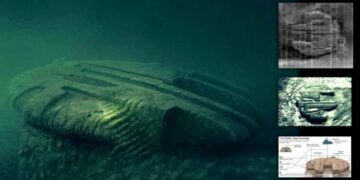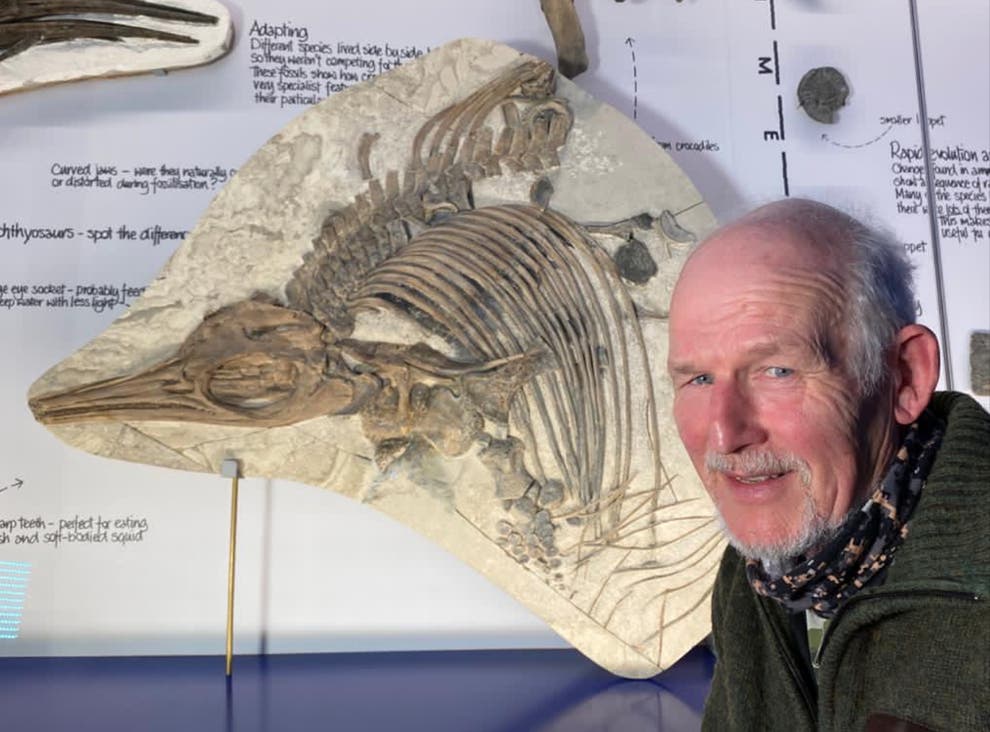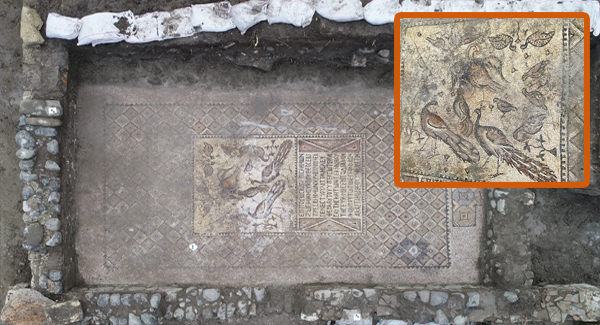What is a boat doing in the middle of a desert? This question has puzzled archaeologists for decades, and a groundbreaking discovery at Abydos in Egypt has begun to unravel one of ancient Egypt’s greatest mysteries. Far from any shoreline, buried beneath the sands of Abydos, archaeologists uncovered full-sized, seaworthy ships predating the Great Pyramids by centuries. Why were these boats buried? What catastrophic event led to their entombment? Who built them, and why were they so deliberately placed in the desert? What do they reveal about the seafaring capabilities of ancient civilizations? Join us as we explore the enigma of these forgotten fleets.
The Discovery at Abydos
In 1988, a fierce desert storm swept across one of Egypt’s oldest archaeological sites near Abydos, revealing wooden beams protruding from the ground, hollowed out and weathered by time. Initially a mystery, this find remained unexplored until an American archaeological team returned in 2000. What they uncovered reshaped history: a fleet of 14 ancient boats, each approximately 70 feet long, buried side by side in perfect alignment. These were not mere models or decorative objects but full-sized ships. Despite degradation and termite damage, the wood was preserved enough for radiocarbon dating, which revealed the ships were nearly 5,000 years old—among the oldest fleets ever discovered, predating the Great Pyramids of Giza by at least 500 years.
How did these massive ships end up buried far from the Nile’s current course? Scholars initially thought they once floated on the river’s banks, but studies showed the Nile had never flowed close enough to the site. Unlike haphazardly docked boats, these vessels were meticulously aligned, each resting in its own mudbrick vault—a chamber about a third the size of a tennis court, with walls adorned with over 120 carefully painted boat drawings on whitewashed surfaces. Though local villagers and early explorers had known of the site for over a century, its true significance emerged only in the 21st century. The deliberate placement, scale, and craftsmanship of these ships point to a civilization capable of remarkable engineering feats, buried in a manner akin to pharaohs’ tombs, surrounded by treasures for the afterlife.
Significance of the Abydos Fleet
The Abydos fleet is more than an archaeological find; it rewrites our understanding of ancient Egyptian engineering and shipbuilding. Before this discovery, most evidence of Egyptian ships came from small wooden models, like the 35 miniature boats found in King Tutankhamun’s tomb, offering limited insights into nautical life. The Abydos ships, however, were seaworthy vessels capable of carrying dozens of rowers. Unlike primitive rafts or dugout canoes, these boats were constructed using planks lashed together in a rare shell-first construction technique, marking a significant technological leap.
The wood itself adds to the mystery. Egypt’s desert lacks forests, and the cedarwood used in the ships likely came from Lebanon, hundreds of miles away. Importing such vast quantities of timber required immense resources and logistical prowess, likely reserved for society’s elite, possibly the pharaoh. The ships’ arrangement in brick-lined chambers, adorned with intricate boat drawings, suggests they were not built for regular use but for ceremonial or symbolic purposes, perhaps as a fleet for a voyage beyond life. The Abydos fleet is a monument to early Egyptian ambition, showcasing their technological prowess and spiritual beliefs.
Symbolism and Purpose of the Boats
To understand why these ships were buried in the desert, we must delve into ancient Egyptian spirituality. In their belief system, death was not an end but a transformation, requiring a vessel worthy of the gods for the journey to the afterlife. Central to this was Ra, the sun god, who sailed across the sky by day and through the underworld by night in a solar boat. The pharaoh, seen as Ra’s earthly embodiment, needed similar boats for his cosmic journey after death. The Abydos fleet likely served this purpose, crafted to carry the pharaoh’s soul on an eternal voyage.
Buried near Abydos, a sacred city tied to Osiris, the god of the afterlife, the ships’ precise alignment reflects the order and harmony Egyptians believed governed the cosmos and society. Like Khufu’s solar boat, discovered centuries later near the Great Pyramid, the Abydos fleet was likely built for spiritual rather than earthly travel. Scholars debate whether these ships ever touched water or were used solely in ceremonial processions. Regardless, their construction demonstrates remarkable craftsmanship and a deep commitment to ensuring the pharaoh’s journey through eternity, mirroring their rule over the Nile.
Other Technological Marvels of Ancient Egypt
The Abydos fleet is one of many awe-inspiring examples of ancient Egyptian ingenuity. Another is Pharaoh Khufu’s solar boat, discovered in 1954 near the Great Pyramid of Giza. Stretching 143 feet, nearly twice the length of the Abydos ships, it was carefully disassembled and buried to accompany Khufu in the afterlife. Built with cedarwood planks tied with rope in a sewn-plank construction, it floated perfectly when reconstructed, showcasing advanced engineering.
At Saqqara, the Serapeum’s underground tunnels house 24 massive granite sarcophagi, each weighing 70 to 100 tons. Carved from single granite blocks with mirror-like precision, their transport through narrow tunnels remains a mystery. Some speculate sand-filled chambers were used to lower them, a technique requiring extraordinary skill. Controversial theories even suggest these sarcophagi were sealed energy chambers, leveraging granite’s piezoelectric properties under pressure. These marvels—desert ships, pyramid boats, and precision-carved sarcophagi—highlight a civilization that blended spiritual belief with technological mastery, creating artifacts that challenge modern understanding.
Global Context: Other Mysterious Ancient Ship Discoveries
The Abydos fleet offers a glimpse into Egypt’s early shipbuilding mastery, but it’s not alone. Across the world, ancient civilizations built remarkable vessels, raising questions about whether seafaring developed independently or through shared knowledge. Viking longships, built thousands of years later, used clinker-built construction for flexibility and strength in rough waters. Phoenician merchant ships, with central keels for stability, sailed beyond the Mediterranean, possibly to the British Isles or West Africa. Polynesian double-hulled canoes navigated vast Pacific distances using stars and currents, while Ming dynasty treasure ships, some over 400 feet long, carried hundreds across the Indian Ocean.
Was the Abydos fleet a unique Egyptian innovation, or part of a broader maritime legacy? Some historians suggest cultural exchanges, while others argue for parallel evolution driven by human curiosity and water’s challenges. The Abydos ships stand among the earliest examples of advanced shipbuilding, hinting at deep, interconnected roots of human ingenuity.
The Lost City of Aten
In 2020, archaeologists uncovered the lost city of Aten near the Valley of the Kings, hailed as the most significant find since Tutankhamun’s tomb. Dating to Egypt’s prosperous era under Amenhotep III, over 3,000 years ago, Aten’s remarkable preservation revealed neighborhoods, bakeries, and administrative buildings frozen in time, with pottery, tools, jewelry, and meal remnants. Unlike ceremonial sites, Aten was a bustling urban center, offering insights into the daily lives of Egyptians who supported monumental projects like the pyramids and the Abydos fleet.
Located near Luxor, Aten likely played a key role in royal and spiritual activities, possibly facilitating the construction of tombs or ritual vessels. This discovery underscores the organizational skill, resource management, and technological prowess behind Egypt’s grand achievements, revealing the vibrant communities that made them possible.
Unanswered Questions
The Abydos fleet raises as many questions as it answers. These 5,000-year-old ships, meticulously crafted and ceremonially buried, offer a window into a civilization of extraordinary engineering, religion, and symbolism. Who built them, and for what exact purpose? Did they sail the Nile, or were they solely for the pharaoh’s afterlife journey? Was their advanced construction an Egyptian innovation, or part of a wider ancient network of knowledge?
Similar questions surround other ancient wonders, from Saqqara’s sarcophagi to Baalbek’s monoliths, hinting at lost techniques or unparalleled ingenuity driven by necessity, belief, and ambition. Each discovery—whether a desert fleet, a hidden city, or a pyramid’s tunnel—reveals an incomplete history. The Abydos ships, silent beneath the Egyptian sun, testify to our ancestors’ ability to dream beyond their time, carrying us on a journey not across rivers, but into the mysteries of the past.























